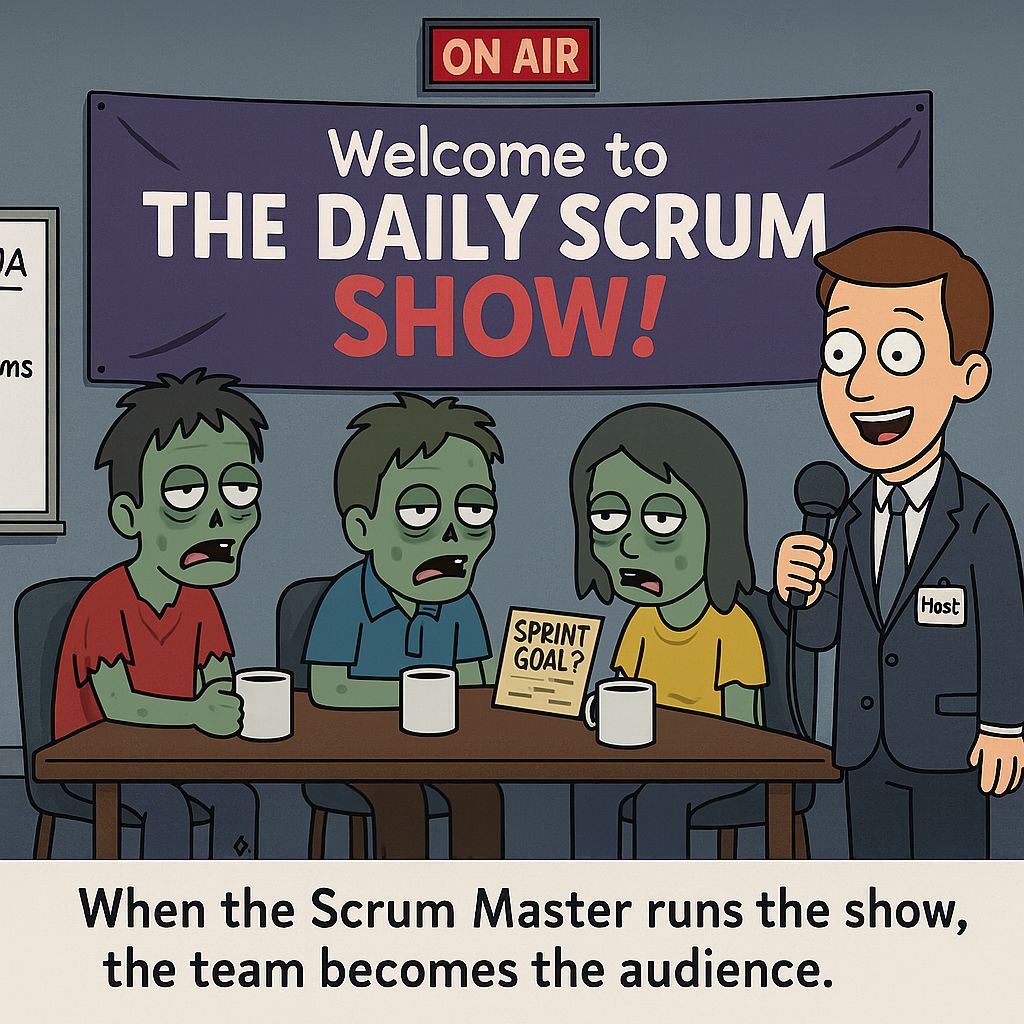If you’re still running every Scrum event, you’ve become the team’s meeting host, not their Scrum Master.

When You Facilitate Everything, Self-Management Never Starts
When Developers rely on you to guide the Daily Scrum, self-management hasn’t taken root.
When the team waits for you to open the Sprint Review, shared ownership is missing.
When you’re expected to steer every Retrospective, accountability hasn’t been built.
The Scrum Guide never requires the Scrum Master to facilitate any Scrum event. The accountability is to enable self-management and empiricism, not to manage ceremonies.
Early Facilitation Is Teaching, Not a Career Requirement
New teams often need structure. Helping them learn the purpose and flow of each event is part of enabling Scrum. Even experienced teams may ask for help during conflict or high-stakes moments. The key difference is that they ask, not expect.
Every Scrum Event Already Has a Natural Owner
Sprint Planning belongs to the entire Scrum Team.
The Daily Scrum belongs to the Developers.
The Sprint Review belongs to the Product Owner.
The Sprint Retrospective belongs to everyone who wants to improve together.
Your job is not to run their meetings. Your job is to help them learn how.
Over-Facilitation Filters Reality and Slows Adaptation
When the Scrum Master dominates facilitation, transparency passes through a gatekeeper. Learning slows. Adaptation gets diluted. Teams stay dependent instead of becoming capable.
The Real Craft of Scrum Mastery Is Different
The true work is helping people think and operate differently. Empowering them to navigate tension. Teaching them to inspect and adapt without waiting for someone to hold the marker or drive the agenda.
When They No Longer Need You, You’re Doing It Right
A team that can run strong, focused events without you is not a threat to your relevance. It is evidence that you’ve enabled the very outcome Scrum exists to create.

